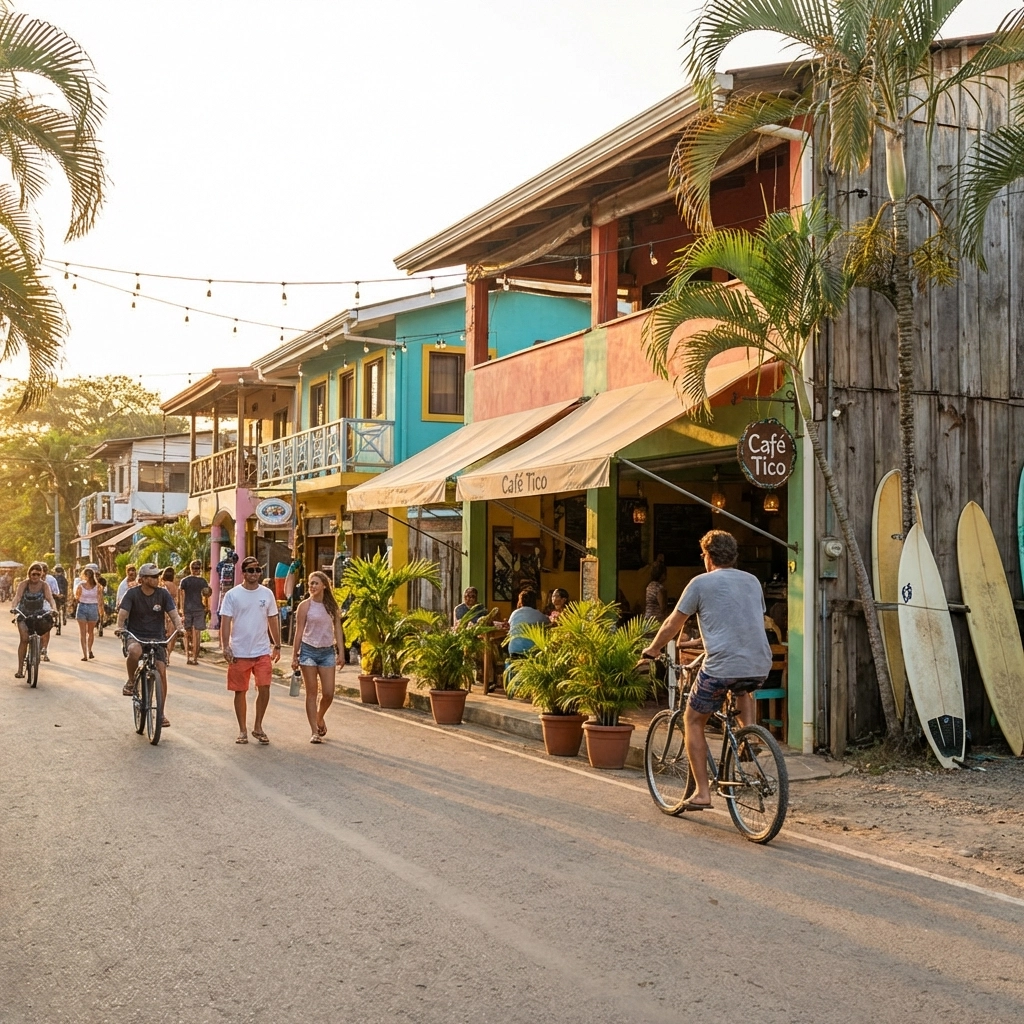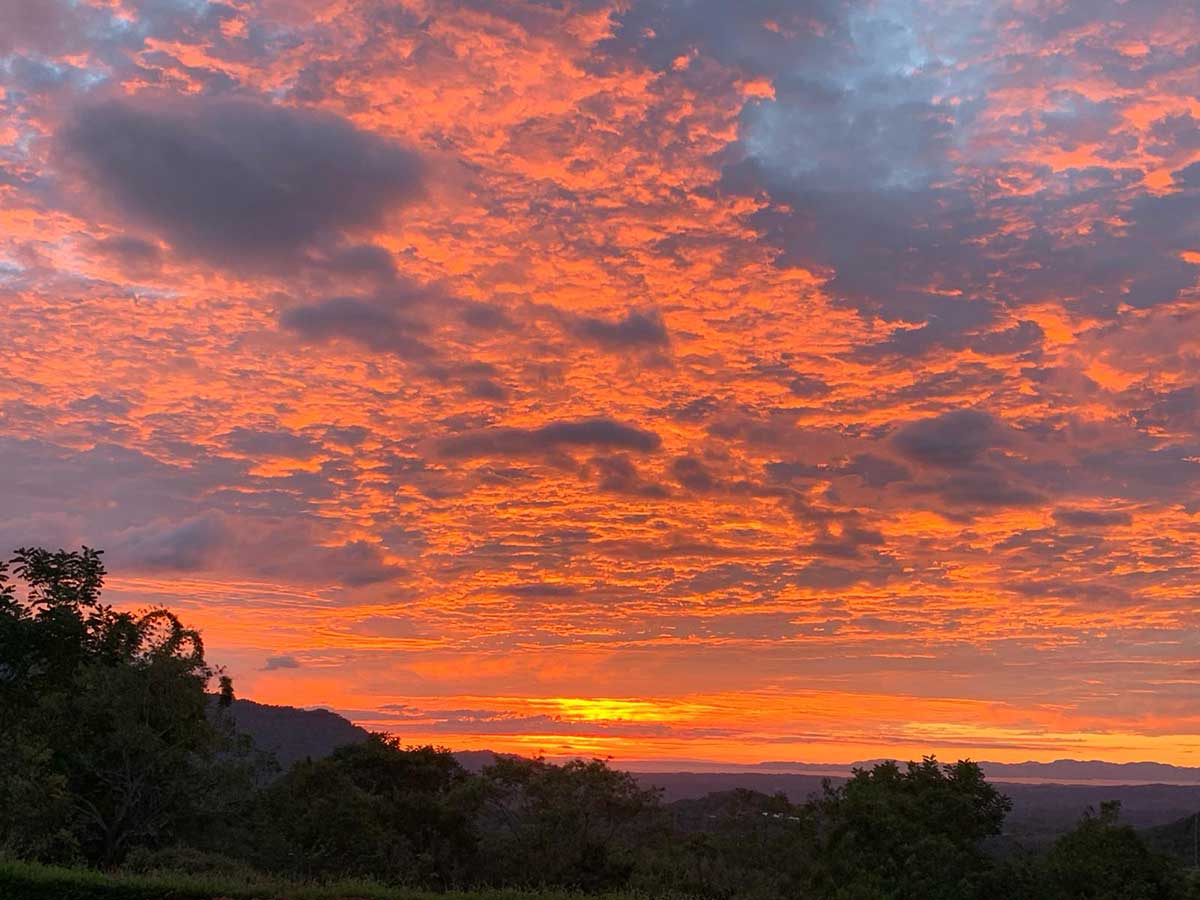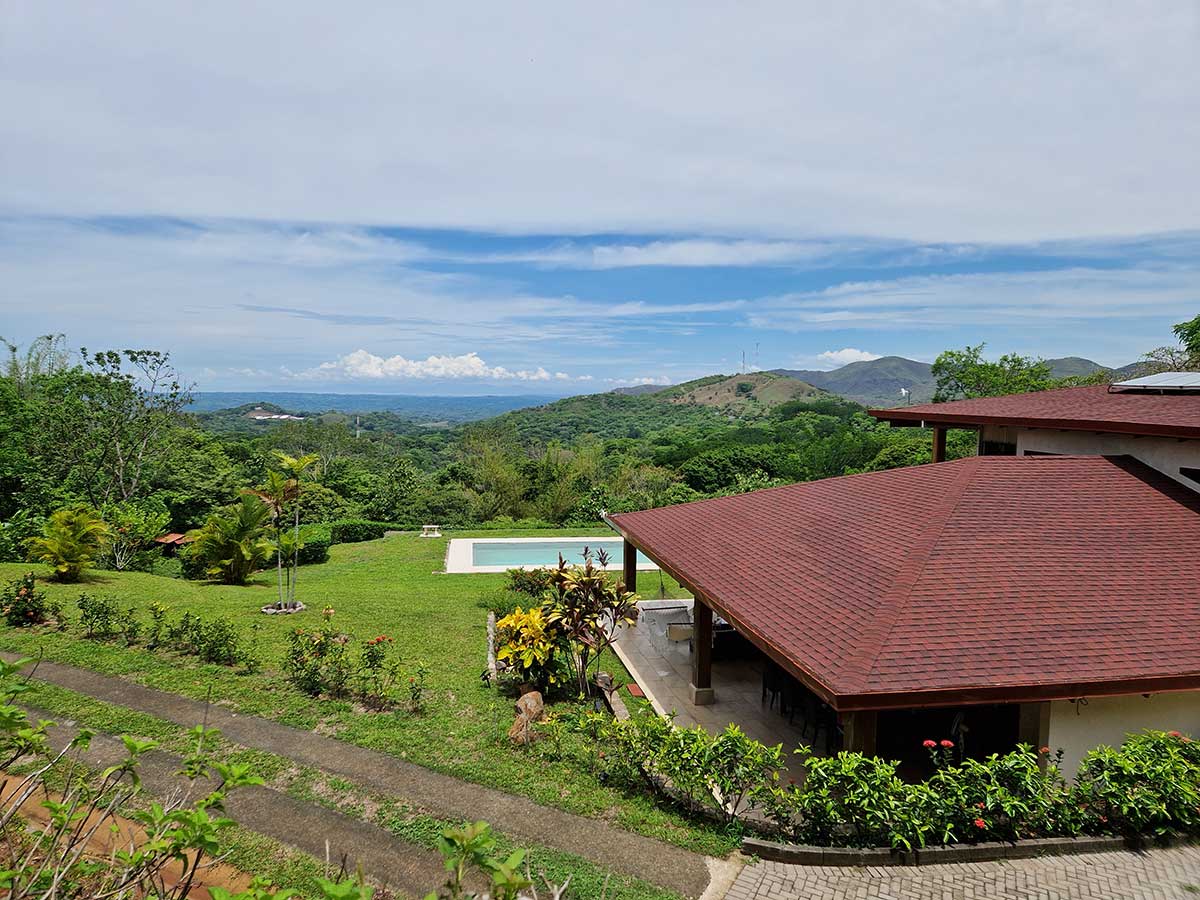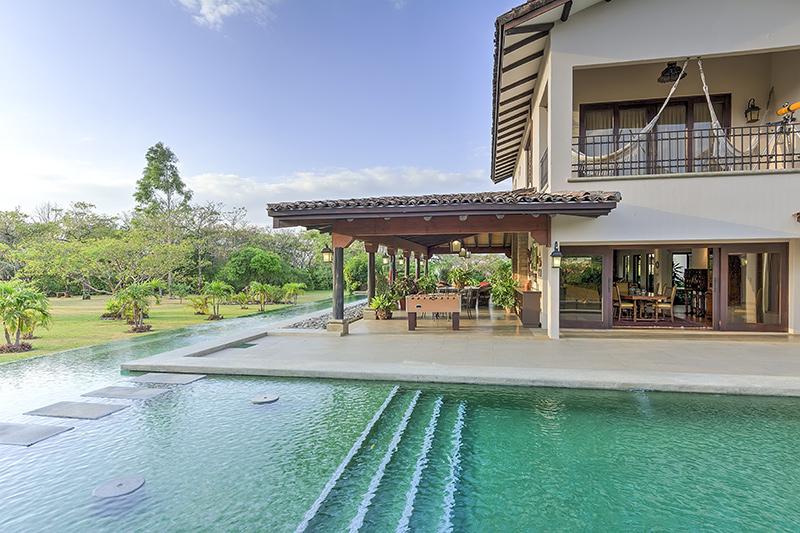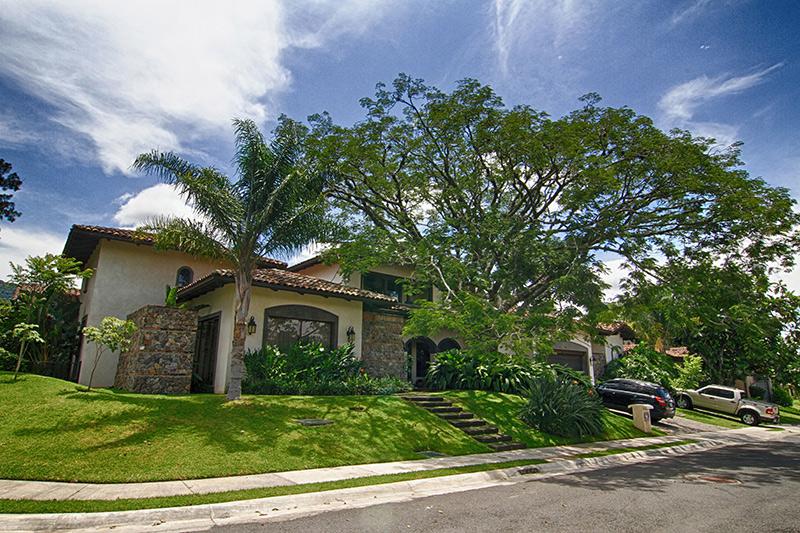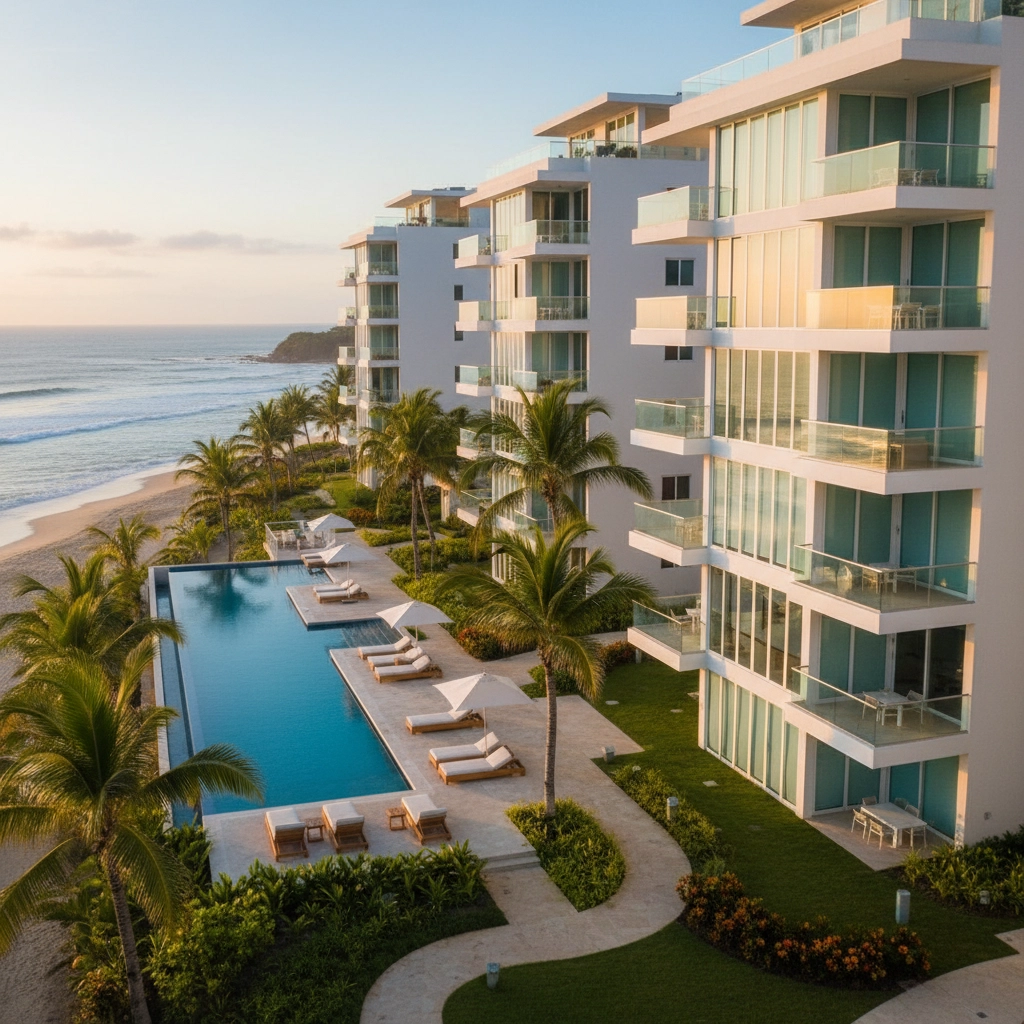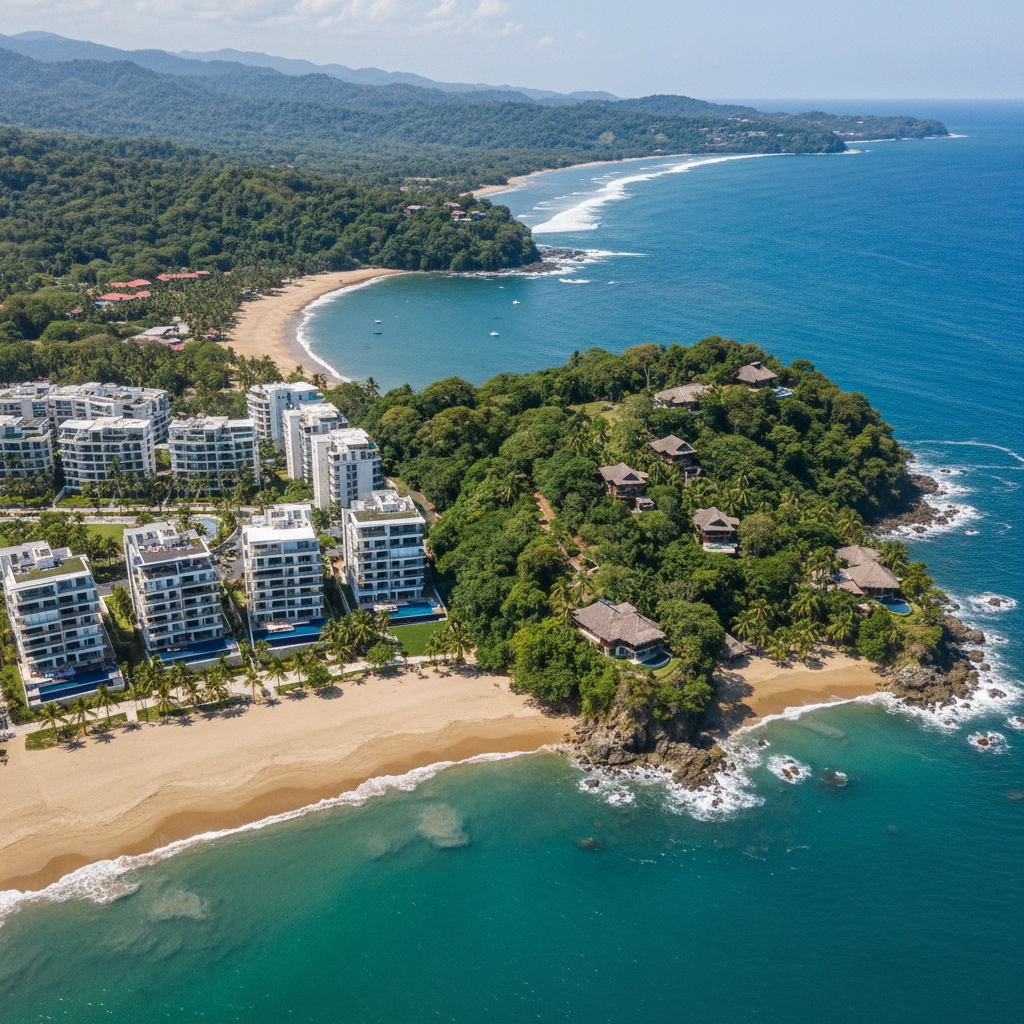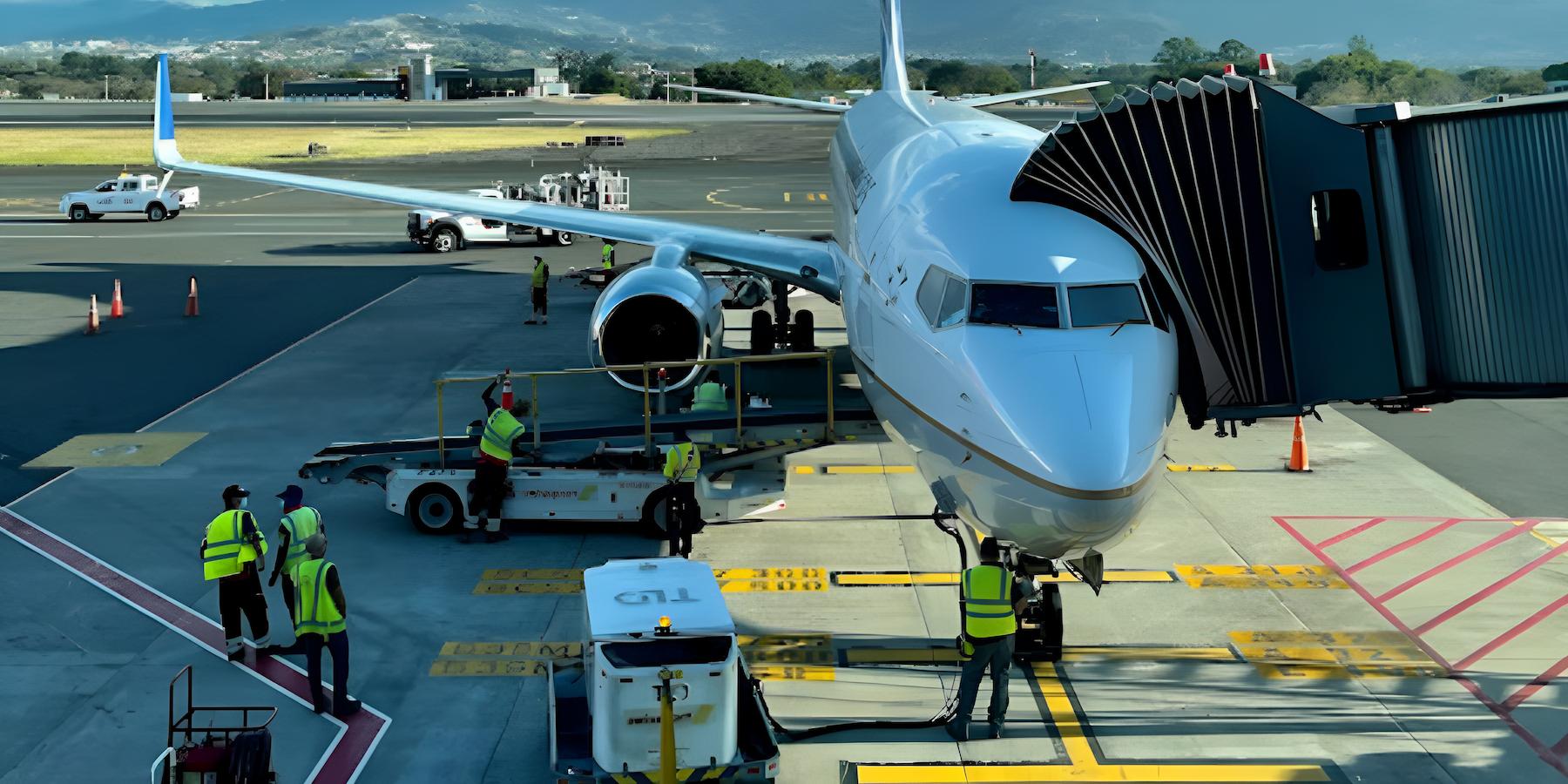Capital Gains in Real Estate: How to Optimize Your Transactions Under Costa Rican LawThe capital gains tax is one of the most relevant tax changes in the market
Capital gains tax is one of the most relevant tax changes in the Costa Rican real estate market in recent years. This legislative change has had a direct impact on the market, especially on activities such as quick remodeling and resales, known as “flip houses.” By taxing profits more strictly, investors now face tighter margins, which has reduced the profitability of this business model. In addition, it has generated a renewed focus on the importance of accurately reflecting the real value of the property in the deed of transfer at the time of purchase. This often underestimated detail can be key to avoiding tax problems in the future, as the tax is calculated on the difference between the declared purchase price and the final sale price.
II. Importance of Reflecting the Real Value in the Scriptures
One of the practices that has historically generated tax complications in the Costa Rican real estate market was that of recording undervalued values in transfer deeds. Although in the past it may have seemed like a strategy to reduce immediate costs, this practice has taken its toll in the long term, especially with the implementation of the 15% tax on capital gains in 2019. The law that established the capital gains tax implicitly recognized the existence of this practice of recording undervalued values. For this reason, taxpayers who own real estate acquired before the effective date of the law were given the possibility of choosing between paying 15% on the net gain or paying 2.25% of the total value of the transaction when selling their property. This provision offers some flexibility, especially favoring those who recorded undervalued purchases and the owners of properties with fiscal values that did not reflect the real value of the assets. In the case of real estate registered after the Law came into force, taxpayers are required to pay 15% on capital gains, which has created new challenges for buyers, sellers and investors.
When the actual value of a property is not reflected in the deeds, the capital gain calculation can be artificially inflated, significantly increasing the tax burden for the seller. Capital gains tax is calculated on the difference between the purchase price declared in the deeds and the sale price at the time of the transaction. If the purchase value initially declared is very low, the difference with the sale price will be considerably higher, which can result in a higher tax bill than necessary. For example, if a property purchased for an amount of ₡100 million is recorded at ₡50 million, the capital gain will appear higher than it really is, forcing the owner to pay additional taxes. This can be particularly detrimental to those investing in substantial renovations or improvements to the property.
To avoid these problems, it is essential that the real value of the property is clearly reflected in the transfer deeds from the outset. This not only ensures a more accurate tax calculation, but also strengthens the seller’s position in the event of a possible audit by the tax authorities. Recording the correct value from the outset may require a larger initial investment in terms of transfer taxes and notary fees, but in the long term, it protects the owner’s interests and facilitates any future transactions.
A practical tip for investors is to keep documentation supporting any improvements made to the property, such as invoices for materials and construction services. This allows for an updated value to be justified in the transfer deeds through an official revaluation. Working with a real estate attorney and a trusted notary can make all the difference in ensuring that the deed reflects the real value of the property, avoiding tax complications and maximizing the legal security of the transaction.
III. Impact on the Flip Houses Business
The market for flip houses and quick sales has been in decline since the implementation of the capital gains tax in 2019. This 15% tax on the net profit from the sale has discouraged many investors who previously saw this business model as an opportunity to obtain quick returns. By increasing the tax burden on perceived profits, flip houses and quick sales have become less financially attractive.
The problem is that high profits from an immediate sale after a renovation can result in a significant tax. For example, if an investor buys a property for ₡100 million, invests ₡20 million in improvements and then sells it for ₡150 million, the tax will be calculated on the difference between the purchase and sale price, i.e. ₡50 million. This results in a large tax burden, without taking into account other costs such as legal and notary fees, which significantly reduces the profit margin.
For those still looking for opportunities in this sector, there are legal strategies that can help mitigate this tax impact. One of the most effective is to request an official revaluation of the property after making significant improvements. This revaluation allows the value recorded in the deeds to be adjusted, reflecting the investments made and reducing the tax base for the calculation of capital gains. It is essential to document all renovations with invoices, contracts and other vouchers that support the costs incurred.
Additionally, it is advisable to plan transactions with specialized legal and tax advice. In some cases, structuring the purchase and sale through a legal entity can offer additional tax benefits, depending on the business model and transaction volume. Although house flipping faces challenges under the new regulations, careful planning and appropriate legal strategies can help investors adapt and continue to operate profitably in the Costa Rican real estate market.
IV. Property Revaluation in Costa Rica: A Key Tool to Optimize Tax Management and Attract Investments
The revaluation of real estate properties in Costa Rica is a fundamental strategy to maximize tax benefits and ensure the legal security of transactions. This procedure, regulated by Law No. 7509 on Real Estate Tax and its reforms, is designed to ensure that the fiscal value of a property reflects its economic reality.
a. Legal Basis: Appraisal and Valuation
Law No. 7509 and the General Regulations of the Real Estate Tax establish the bases for the appraisal and valuation processes:
● Appraisal: Article 10 Bis defines appraisal as a set of calculations and analyses carried out by professionals duly incorporated into the Federated College of Engineers and Architects or the College of Agricultural Engineers. This process aims to determine the real value of a property, considering factors such as location, use, construction materials and state of conservation.
● Valuation: This refers to the modification of the taxable base of a property carried out by municipalities, following technical criteria established by the Technical Standardisation Body (ONT). According to article 11, it is a non-delegable activity of the Tax Administration to supervise these changes.
b. The Technical Standardization Body (ONT)
Created by Article 12 of Law No. 7509, the ONT plays an essential role in the real estate tax system. Its main powers include:
1. Establish general valuation provisions: The ONT provides the technical rules and criteria that municipalities must follow to carry out consistent and equitable valuations.
2. Coordinate with municipalities and the National Cadastre: This coordination ensures that municipal and cadastral databases are consistent, improving the quality of valuations.
3. Provide technical methods and factors: The ONT develops depreciation methods, useful life rates, values by type of building, and economic factors related to topography, location, urban equipment and public services.
4. Analyze and recommend corrections to municipal appraisals: By supervising appraisals carried out by municipalities, the ONT ensures that they comply with established standards and applies corrections when necessary.
5. Publish general provisions: To ensure transparency, municipalities must annually publish the criteria and methods dictated by the ONT in the Official Gazette La Gaceta and in a national circulation newspaper.
The ONT, as a mandatory technical advisory body for municipalities, reinforces the legal security of the Costa Rican real estate tax system by establishing a homogeneous framework for fiscal valuation.
V. Procedure for Requesting a Modification of the Fiscal Value
The procedure to modify the tax value of a property must be carried out through the Virtual Procedures Platform (TRAVI) of the Ministry of Finance. This process is supervised by the Tax Administration, which is responsible for reviewing and validating the documentation submitted.
1. Steps for the Procedure in TRAVI
● Access to the platform:
Enter TRAVI
Have an active account and digital signature to manage the process.
● Collection of documents:
Request letter: Addressed to the Tax Administration, signed by the registered owner or his legal representative. In the case of legal persons, include a valid legal entity no more than one month old. If the procedure is carried out by a third party, this must be authorized by a letter authenticated by a notary public.
Real estate declaration: Preferably updated within the last five years.
Municipal certification: If the declaration is not available, a certification must be submitted indicating the date of the last declaration, homogeneous area used, total value recorded and the origin of the current value.
● Uploading documents to TRAVI:
Scan the documents in PDF format and upload them to the platform.
Verify that the files are legible and meet the established requirements.
● Review by the Tax Administration:
The Administration evaluates the documentation submitted and, if appropriate, requests additional information or carries out technical inspections to verify the condition of the property.
● Resolution and notification:
If the application is approved, the new tax value is registered in the tax system. The notification is made via TRAVI, and the modification comes into effect on January 1 of the following year, as provided for in Article 9 of Law No. 7509.
● Update in the National Registry:
Once the Tax Administration has made and registered the change in the fiscal value of the property, it must be updated in the National Registry system. This process is essential to ensure that the registered information reflects the updated value of the property.
According to the DGT-RN-001-2018 agreement signed between the Ministry of Finance and the National Registry, this update is carried out automatically every 24 hours. This automated system ensures that the data is synchronized, improving transparency and efficiency in registry and tax management.
VI. Reasons for Modification of the Fiscal Value
a. Automatic Modification: Article 14 (Law 7509)
The taxable base of a property may be automatically modified for the following reasons:
1. Higher value stated in a public deed: This adjustment occurs when a transfer of ownership, such as a sale, reflects a higher value than that registered.
2. Creation of mortgage liens: If the amount of the mortgage exceeds the registered value, the latter is automatically adjusted to reflect the new tax base.
3. Rectification of capacity and joining of properties: These modifications are made when the dimensions of the property are adjusted or properties are integrated.
4. Formal recognition of higher value by the owner: Allows the taxpayer to voluntarily declare a higher value.
5. Fractionation of properties: The value of the new fractions must be recalculated.
6. Construction or addition of significant improvements: If the improvements represent at least 20% of the registered value, the adjustment is mandatory. In agricultural or agro-industrial lands, improvements intended for the well-being of workers or production are not considered.
The principle of economic reality, contemplated in this article, ensures that the tax value reflects the real value of the asset, avoiding distortions in the calculation of taxes.
b. Other Causes: Article 15 (Law 7509)
The Tax Administration may adjust the registered value by means of an appraisal, ex officio or at the request of the interested party, in the following cases:
1. Public works: The construction of infrastructure, such as roads or highways, that increases the value of the property.
2. Damage due to causes beyond the owner’s control: Such as natural disasters that reduce the value of the property.
3. Municipal assessments: Based on ONT criteria.
These adjustments, although specific, are essential to reflect substantial changes in the conditions of the property and ensure a fair tax base.
VII. Validity
Validity of Modifications (Article 21)
Changes in the taxable value will only be effective from 1 January of the year following their notification and once they become final in the administrative process. This period allows taxpayers to plan their tax obligations in advance, ensuring transparency and predictability.
VIII. Incorporation of the Municipal Declaration and Real Estate Improvements
The process of revaluation of real estate properties in Costa Rica is based on updating the fiscal value of the properties, which directly impacts the tax base for calculating taxes. This procedure is carried out mainly through the municipal declaration of the property, the recognition of improvements made and the use of technical tools such as the value map published annually in the Official Gazette La Gaceta.
1. Municipal Declaration of Real Estate
The declaration of real estate assets is a fundamental step to update the fiscal value of a property and ensure that it reflects its economic reality. According to the applicable regulations, this procedure can be carried out in different ways, including assistance from experts, physical presentation or digitally through municipal platforms.
a. Options for Declaring Real Estate
The Municipality of San José, as an example, offers the following alternatives for making the declaration:
1. Professional assistance: You can request an assessment from a municipal expert (engineer or architect), who will prepare the declaration based on technical parameters from the Ministry of Finance and municipal tools.
2. In-person declaration by the owner: The taxpayer can complete the physical form and deliver it directly on the municipal services platform.
3. Digital declaration: Accessing the municipal website and completing the “Real Estate Property Information Declaration”, guided by a designated professional.
The administration analyses the data and may accept or correct the declaration within 10 working days. In the event of discrepancies, the municipality may carry out an ex officio appraisal, which may include visits to the site for inspection.
b. Importance of the Values Map
To determine the value of land and buildings, municipalities use the value map, which is published annually in La Gaceta, as a reference. This document is an essential tool that establishes homogeneous criteria for valuing land and buildings according to their location, use and characteristics.
2. Recognition of Real Estate Improvements
When a property owner makes significant improvements to his or her property, such as extensions or remodeling, these must be formalized in order for them to be recognized in the tax value. This process is particularly relevant, since it affects both the tax burden and the market value of the property.
(i) Procedure for Recognizing Improvements
A. Building Permits:
Before making any improvements, the necessary municipal permits must be obtained, which also serve as a basis for updating the tax value of the property.
B. Parallel declaration of improvements:
Once the construction permits have been granted, the municipality can automatically update the tax value, taking into account the impact of the works.
C. Technical documentation:
The owner must retain evidence of the improvements made, including:
● Contracts with suppliers.
● Invoices for materials and labor.
● Technical reports prepared by registered engineers or architects.
(ii) Fiscal Impact of Improvements
Formal recognition of improvements allows them to be incorporated into the taxable value of the property, adjusting its tax base. This is especially relevant for calculating property tax and capital gains tax in the event of a subsequent sale.
(iii). Technical Criteria
The estimate of the value of the improvements and the property in general is based on:
● Land value maps: Updated annually.
● Construction Typology Manual: Published by the Ministry of Finance, which details the construction characteristics and their impact on value.
IX. Tax Implications and Benefits for Investors
1. Capital Gains
Article 7 of the Law to Strengthen Public Finances establishes a 15% tax on capital gains from the sale of real estate. This tax is calculated on the difference between the sale price and the taxable value of the property, adjusted for documented improvements.
A proper revaluation allows:
● Reduce the tax base: By including improvements and reflecting the real value of the property, the tax burden is minimized.
● Optimize real estate transactions: Transparency in the tax value increases trust between the parties.
2. Benefits of the House Flipping Model
For investors who remodel and resell properties, a timely revaluation ensures that investments made in improvements are recognized for tax purposes. This is key to maximizing the profitability of the business by significantly reducing capital gains tax from the updated value of the property.
X. Legal Opinion: Property Revaluation and its Fiscal Impact in Costa Rica
The revaluation of properties in Costa Rica is a procedure that, beyond its technical component, has far-reaching legal, economic and social implications. This mechanism not only seeks to reflect the economic reality of a property, but also responds to fundamental principles of tax law, such as fiscal equity, legal certainty and respect for the tax-paying capacity of citizens.
1. Underlying Legal Principles
From a legal perspective, the revaluation of real estate is based on several key principles:
a. Principle of Economic Reality: Law No. 7509 establishes that the taxable base of a property must be adjusted when there are acts or circumstances that modify its real value. This principle requires that the fiscal value of a property reflect its true market value, thus guaranteeing a fair and proportional tax burden. This approach is consistent with the principle of tax capacity, which requires that taxes be calculated based on the taxpayer’s real wealth.
b. Horizontal Equity: Revaluation ensures that taxpayers with properties of equal real value pay equivalent taxes. Otherwise, fiscal inequities could arise, where undervalued properties contribute less than their fair share, affecting municipal and national revenues.
c. Legal Security: Current regulations establish a clear and transparent framework for the revaluation of real estate. This includes specific causes, well-defined deadlines and challenge mechanisms, as established by Law No. 7509. The predictability of this process is essential to generate confidence in investors and guarantee voluntary compliance with tax obligations.
2. Impact of Automating the Update Process
The DGT-RN-001-2018 agreement between the Ministry of Finance and the National Registry marks a milestone in the modernization of the Costa Rican tax system. The automatic updating of tax values every 24 hours has multiple implications:
● Efficiency and Error Reduction: Automation minimizes the possibility of discrepancies between tax and registry records. This system ensures that any change in the tax value of a property is reflected almost immediately in the National Registry, eliminating administrative delays that could lead to legal inconsistencies.
● Increased Tax Collection: By ensuring that tax values are updated in a timely manner, the State can collect transfer and property taxes that are more in line with the economic reality of the properties. This not only increases tax revenues, but also promotes greater equity in the distribution of the tax burden.
● Transparency in Transactions: For investors and owners, this system provides certainty about the registered tax values, facilitating negotiation and reducing possible conflicts related to the discrepancy of values in real estate transactions.
XI. Appeals Against Valuations and Appraisals
a. Right to Challenge (Article 19)
When a taxpayer does not agree with an assessment or appraisal, the regulations provide several resources to challenge the decision:
1. Appeal for revocation: It must be submitted to the municipal appraisal office within 15 business days from notification.
2. Appeal: If the appeal for revocation is rejected, the taxpayer may appeal to the municipal council within the following 15 business days.
3. Administrative Tax Court: As the final instance in the administrative process, the Court must resolve within a period of 4 months from the filing of the appeal.
Judicial route: If the Administrative Tax Court does not rule in favor, the case may be referred to the Contentious-Administrative Court, in accordance with the provisions of the Law regulating the contentious-administrative jurisdiction.
Access to these resources reinforces the principle of effective judicial protection and ensures that taxpayers can defend themselves against assessments they consider unfair.
Revaluation of the fiscal value and its correct management are central elements in the Costa Rican tax framework, especially in the context of the capital gains tax and other taxes related to real estate. This procedure not only ensures that taxpayers’ tax obligations reflect the economic reality of their properties, but also opens the door to legal and technical strategies to optimize real estate transactions.
The Costa Rican regulatory framework, supported by technical tools such as the map of values, the actions of the Technical Standardization Body and the automation in the updating of tax values, creates a solid environment for the development of the real estate market. However, the success of these initiatives depends on adequate planning, compliance with legal requirements and timely professional advice.
In a constantly evolving tax and legal landscape, understanding and strategically using revaluation procedures not only enables compliance with tax obligations, but also facilitates informed decision-making, promotes legal certainty, and maximizes benefits for both property owners and investors. This comprehensive approach reinforces the attractiveness of the Costa Rican real estate market, positioning it as a competitive and reliable environment for long-term operations.
Comments Off on Capital Gains in Real Estate: How to Optimize Your Transactions Under Costa Rican Law The capital gains tax is one of the most relevant tax changes in the market

